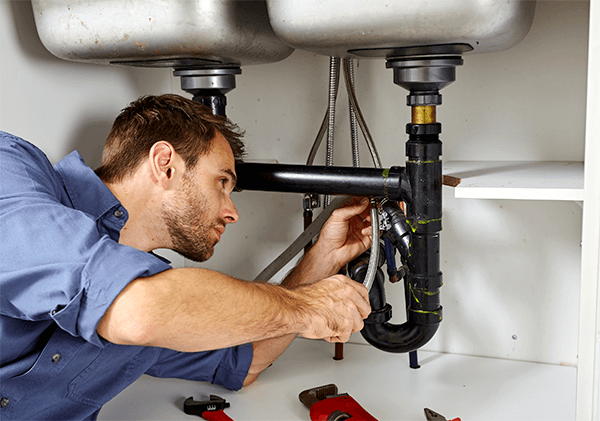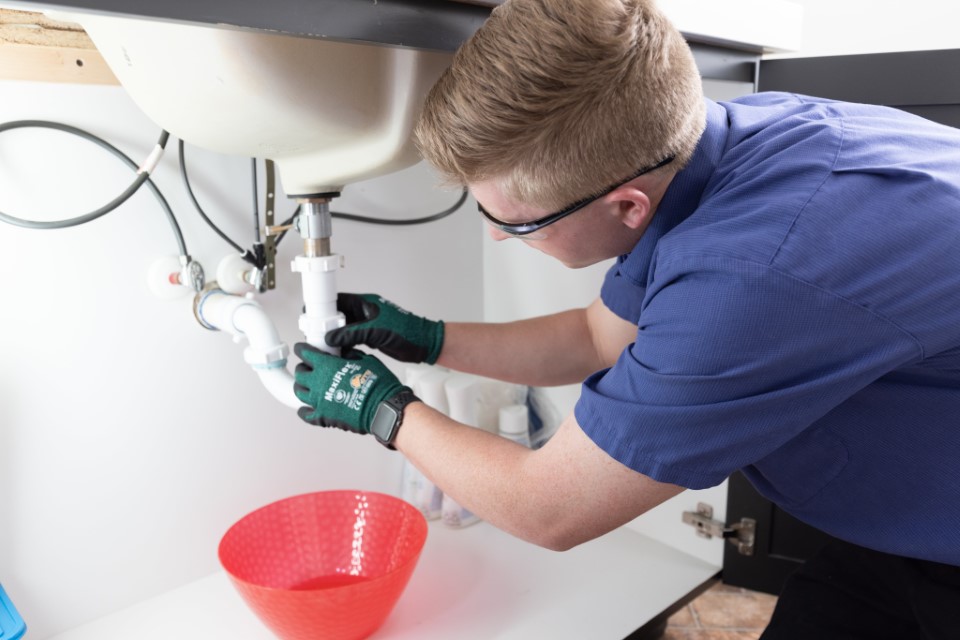Immediate Tips for Critical Situations Until A Plumber Arrives
Immediate Tips for Critical Situations Until A Plumber Arrives
Blog Article
They are making a few good pointers on the subject of What to Do While Waiting for an Emergency Plumber overall in the content beneath.

Pipes emergencies can strike at any time, creating anxiety and prospective damage to your home. Whether it's a burst pipeline, a stopped up drainpipe, or a leaking faucet, recognizing exactly how to manage the situation till an expert plumbing technician shows up can save you from further complications. This short article offers essential emergency situation plumbing tips to aid you alleviate damage and regain control throughout a plumbing situation.
Shut off the Supply Of Water
The first step in any kind of pipes emergency is to shut down the supply of water. For localized concerns, such as a dripping tap or toilet, switch off the valve near the fixture. When it comes to a major leakage or ruptured pipe, situate your home's primary water shut-off valve and transform it off instantly. Recognizing the place of these shutoffs in advance can save beneficial time during an emergency.
Address Small Leakages with Short-term Repairs
Little leaks can swiftly become substantial issues if left unchecked. Make use of these short-term solutions up until specialist assistance arrives:
While these fixes aren't long-term, they can aid reduce water loss and damages.
Unclog Drains Securely
A clogged drainpipe can be a frustrating and untidy concern. Here's how to tackle it:
If these methods don't function, avoid utilizing extreme pressure, as it might worsen the blockage.
Handle Overflowing Toilets
An overruning commode can trigger immediate mayhem. Right here's what you need to do:
Shut down Your Hot Water Heater
In certain emergencies, such as a burst pipe, it's a good idea to shut off your water heater. This avoids overheating or damages to the device when water stops flowing. Shut off the power supply to the water heater (electric or gas) and allow it cool off to stay clear of possible hazards.
Temporarily Stop a Burst Pipeline
A ruptured pipe can result in considerable water damages in mins. To minimize the concern:
Call a professional plumbing instantly to address the problem permanently.
Handle Frozen Pipes Meticulously
In cooler environments, icy pipelines are a typical emergency. If you think a frozen pipe:
Avoid Additional Damage
Taking quick action to minimize damage can conserve you money and time in the future. Right here's exactly how:
. Have an Emergency Situation Pipes Set
Prepare a fundamental plumbing emergency situation kit to take care of minor issues effectively. Your set should consist of:
Having these tools accessible can make a considerable distinction in your capability to manage emergency situations.
Know When to Call a Professional.
While quick fixes can assist temporarily, particular plumbing problems require prompt professional focus. Call a plumbing technician if:.
Immediately getting in touch with a professional makes sure the issue is solved correctly and protects against further difficulties.
Verdict.
Plumbing emergency situations can be frustrating, however with the appropriate expertise and tools, you can handle the circumstance effectively until assistance gets here. By turning off the supply of water, attending to tiny leaks, and using temporary repairs, you can lessen damages and keep your home safe. Remember, these ideas are short-lived solutions; always seek advice from a qualified plumber to handle the source of the issue. Prep work and fast reasoning are your best allies in any plumbing emergency.
8 Helpful Tips for Managing Plumbing Emergencies at Home
If your plumbing system hasn’t failed once, wait for it because almost everyone has a story to tell. Sometimes, it could be simple emergencies such as a leaking pipe, a blocked cistern, or even a big burst pipe. In situations like this, you need to have some handy tips to save you some money and from possible damages.
Take care of minor issues early.
Sometimes, you could have avoided an emergency by taking proactive measures while it was still early. Some major plumbing emergencies can be a result of an ignored minor issue. We recommend that you have items like plumbing tapes and other related items. A plumbing tape can allow you to manage minor leaks before the plumber arrives.
Cut off the water supply.
This tip is essential in almost any type of leakage problem. For problems like minor leakages in the toilet or kitchen, turn off the supply that takes water to the affected pipes. If the leakage is a major pipe, you must shut off the supply valve to the entire building. This will help you avoid flooding your home and neighbors if you share a flat.
Know your plumbing system
Folks typically move into a new apartment without understanding the water supply around the building. This can prove disastrous if a water emergency arises and the plumber is far away. The previous tip will prove useless if you don’t practice this one. More importantly, know where your water shut-off valve is located – you’ll need that knowledge to prevent potential home floods.
Have some common handy tools
There are lots of plumbing emergencies that you can handle without hiring a plumber. That’s why you must keep some tools available always. Some tools that you can use to fix simple plumbing emergencies easily include plumbing tapes, screwdrivers, thread seal tapes, plungers, pliers, tape measures, and rubber gloves.
Insulate your pipes from cold
You’ll save yourself from many plumbing expenses if you protect your water pipes from the cold. This is because of the harmful effects that cold weather can have on your pipes. During winter, your pipes can burst from being overly expected to freezing temperatures. So, make sure insulators are there to keep the pipes working correctly.
Avoid practices that will clog your toilet.
Many people indulge in practices that can damage the plumbing system of the entire building. One of these is when they use their toilet to dispose-off garbage. They flush all kinds of things, such as paper towels, bandages, hairs, female sanitary products, etc., down the toilet. This will block your toilet in the long run, incurring unnecessary expenditures. Dump such waste in the trash instead.
Check your dials regularly.
Sometimes, there could be leakages in your home without noticing them in time. So, constantly monitor your water meter dial. If the dial is reading when there is nobody using water, this is an indicator that there is leaking. Check for leaks immediately. Call a plumber as soon as possible if you can’t find any.
https://www.constructionplacements.com/8-helpful-tips-for-managing-plumbing-emergencies-at-home/

I'm very interested in Expert Tips for Managing a Plumbing Emergency Until Help Arrives and I really hope you enjoyed reading my article. Don't hesitate to take a moment to promote this blog posting if you liked it. Thanks a lot for being here. Don't forget to check up our site back soon.
Call Report this page